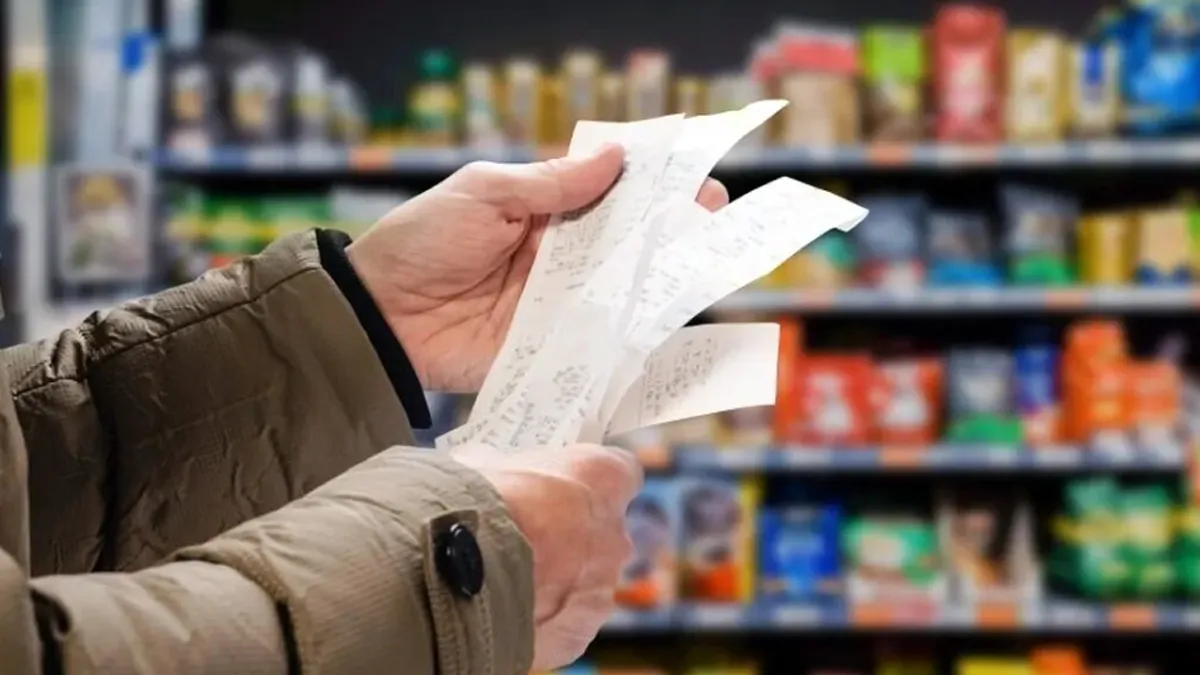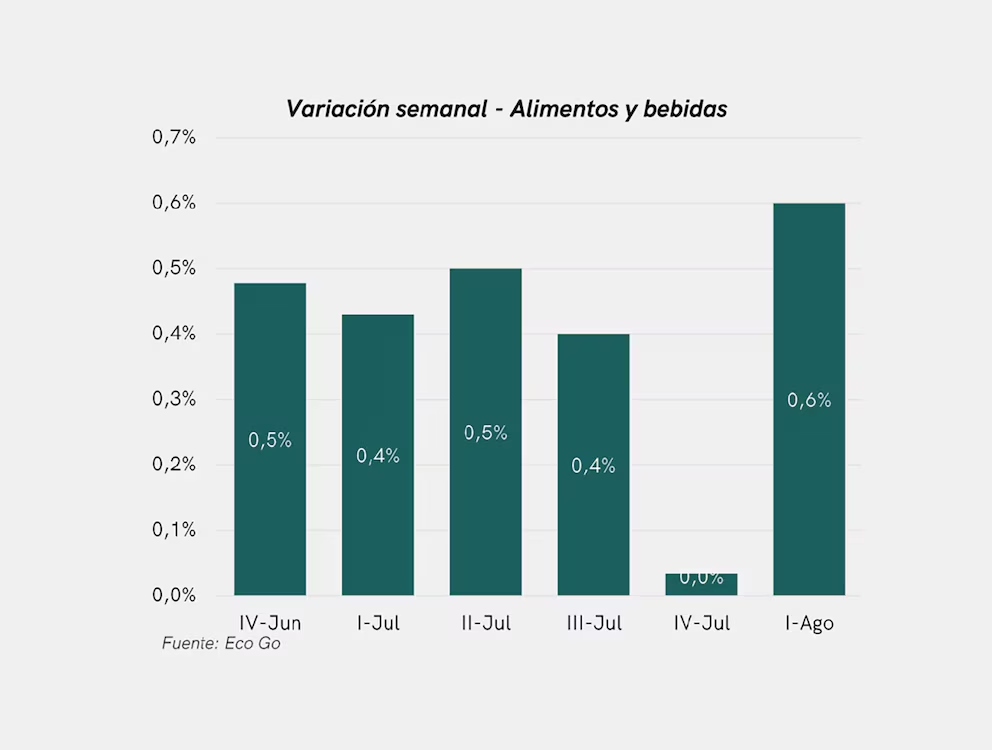The rise of the dollar in July is already impacting August prices and calls into question the slowdown in inflation.


The rise in the official dollar in July began to impact August prices, according to economists and private consulting firms. Although the July CPI is expected to be below 2%, the currency drag is already being felt in food, regulated goods, and services, which could halt the inflationary slowdown.
According to the consulting firm EcoGo, food consumed at home rose 0.6% in the first week of August. They project monthly inflation of 2.2% for this item and 2.3% if food consumed outside the home is included. Overall, the index is expected to rise 1.9% in August, driven by public transportation (up 3.6%), prepaid health insurance (up 1.6%), fares (up 2%), cigarettes (up 3.6%), and expenses (up 1.5%).

The price reaction to the 14% increase in the official exchange rate in July is a phenomenon that, according to the government, should be limited by monetary restrictions: with fewer pesos on the streets, there is less room to validate increases . However, among private economists, another interpretation prevails.
" Whatever we can, we'll pass on. Where is it written that inflation is 1.5%? " Carlos Melconian questioned in an interview with Infobae . He added: " If things are cold, there will be less transfer ," referring to the low level of economic activity.
??? In the fourth week of July, was there deflation in food prices? This marked three consecutive weeks of deceleration.
In the fourth week of July, the @LCGmedia index fell 0.2% weekly.
The 4-week average food inflation rate fell to 1.4%… pic.twitter.com/3ZkZN4gVN3
LCG agreed that the dollar's impact is still contained, although they warned that it could slow the downward trend of recent months. " Sluggish demand and the opening of imports are preventing margins from recovering as quickly as before ," they explained. "The recent rise in the dollar may not imply a sharp jump in inflation, but it could slow its decline," they added.
Damián Di Pace , director of Focus Market, maintained that the price effect has not yet fully occurred. " Many companies decided to wait to see if the exchange rate stabilized ," he explained. In his consulting firm's surveys, food prices rose 2.4% so far in August, beverages rose almost 5%, and cleaning and personal care prices showed minimal variations.
Furthermore, Di Pace highlighted a shift in consumer behavior. " I didn't see Argentines rushing to the supermarket to stock up. Today, the business is rotation, not stockpiling. Customers no longer accept indiscriminate price increases ," he said on Canal E.
Meanwhile, the official inflation figure for July will be released in the coming days. Private estimates suggest it will be close to 1.9%, slightly above the 1.6% in June. Analytica measured a weekly increase of 0.3% in the last week of July for food and beverages in the Greater Buenos Aires.
Equilibra also projected a 1.9% rise for both the general and core CPI. In its breakdown, regulated prices were the most dynamic (up 2.4%), while seasonal prices were below 2%. Similarly, the C&T survey for the Greater Buenos Aires region also reported monthly inflation of 1.9%.
For his part, economist Orlando Ferreres predicted inflation of between 2% and 3% for August. " It won't be a very large increase, but it could break the slowdown ," he warned in an interview with Radio Rivadavia .
elintransigente




